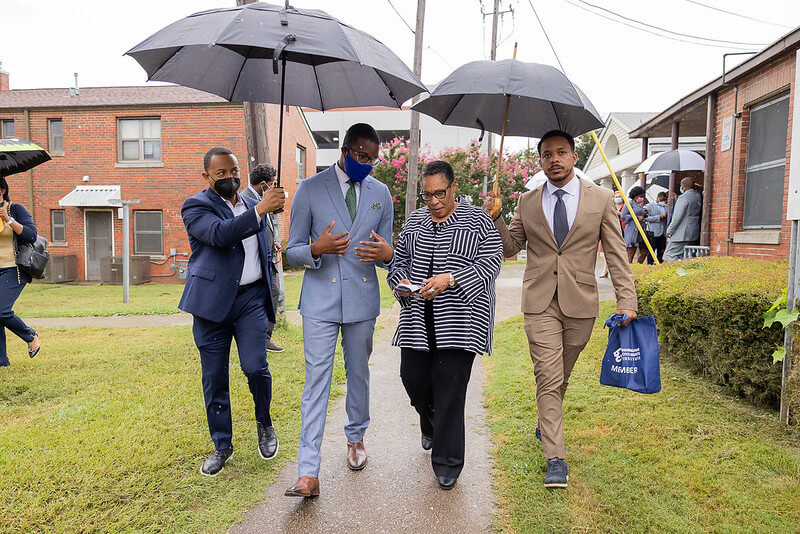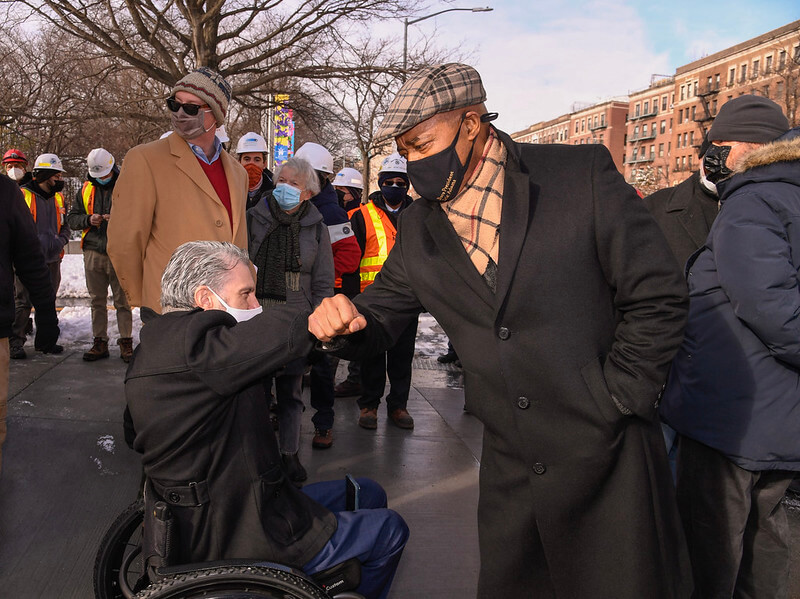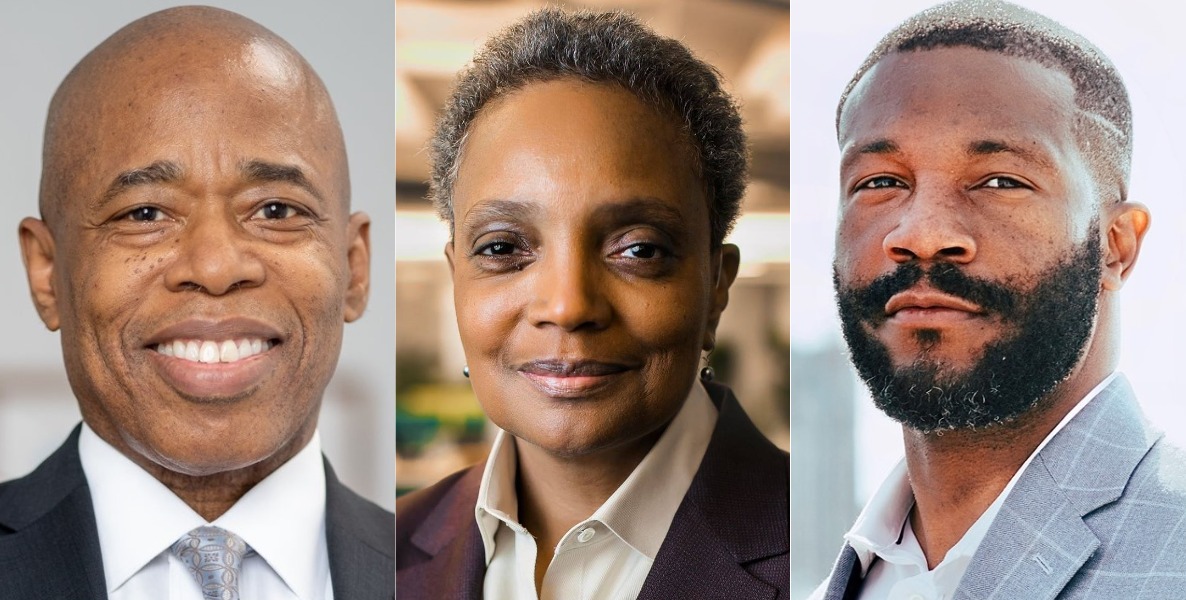The best way to judge an elected figure’s character is not whether he or she has cheated on a spouse, played the patronage game, or violated the spirit of campaign finance rules. It’s really this: Is he or she willing to say “no” to their friends? At a time when base politics are dominant, when every candidate fears a primary challenge far more than a general election opponent, those who are willing to defy their political base are modern-day profiles in courage.
This is not without precedent, of course. In the 1968 presidential campaign, anti-war candidate Bobby Kennedy, speaking at Notre Dame University during the Indiana primary, was booed by his base for wanting to abolish college draft deferments. “You’re getting the unfair advantage while poor people are being drafted!” he bellowed. Once, when asked by a college student who was going to pay for the social programs he was proposing, he responded, “you are.”
Back then Kennedy, who saw politics as the art of persuasion, was less of an outlier. These days, challenging your voters has taken a backseat to pandering before them. That’s why it’s been so refreshing to see some signs of late that independent thought in our politics might still have something of a future. It’s something the ascendant Democratic Socialists of Philadelphia might want to keep in mind; we’re in a big city, state and country, and even your allies might just have principled disagreements with your more knee-jerk political values.
MORE ON PRAGMATIC PROGRESSIVISM:
- Far left discourse may appease the woke—but it stifles solutions
- Progressives vs. reformers is Philly’s real political divide
- The answer to our divided times? Listening
- What Philly can learn from NYC’s mayoral race
Next week, Birmingham, Alabama, Mayor Randall Woodfin stands for reelection. You may remember that we’ve hosted Woodfin twice before— he’s a pragmatic progressive who eschews ideology, there being no liberal or conservative way, after all, to fill a pothole. Polls show Woodfin is likely to win a second term, but that hasn’t stopped his left wing base from reaching a verdict that he’s insufficiently progressive.
Progressive activists rescinded their support of him when he sought to hire more cops; apparently, his argument that he was listening to Black constituents who, amid escalating gun violence, just want to feel safe enough to leave their homes wasn’t consistent with woke, defund-the-cops-at-all-costs dogma.
“People want to box me in and make me choose between reform and accountability measures, and policing and keeping the city safe,” Woodfin told Slate.com. “No, I reject your ultimatum. I can walk and chew gum at the same time. We can do both.”

Earlier this week, because I have no life, I watched the Birmingham mayoral debate online. Woodfin was attacked from all angles, but kept to his mantra of keeping the streets safe and investing in economic development, cleaning up a city block by block.
In both style and substance, Woodfin was reminiscent of New York’s Eric Adams, whose victory in the New York mayoral primary was a stark reminder that the electorate is far less ideologically rigid than the shrill voices of woke Twitter might have us believe. Like Woodfin, the former reformist cop and Brooklyn Borough President stuck to universal kitchen table issues—crime and economic opportunity—and New Yorkers said “yes, please” to what he was selling, while other candidates talked of defunding the police and universal basic income.
“This is not a socialist country, let’s be clear on that,” Adams said during an appearance on HBO’s Real Time with Bill Maher after winning the election. “This is a country that believes in giving people the opportunities [so] that they will be able to succeed and excel in this country.”
Then there was the congressional primary race in Ohio between two Black women, in which Biden loyalist Shontel Brown edged out progressive Nina Turner, who had the endorsement of Bernie Sanders, AOC and “The Squad” and who, mirroring Trump-like incivility, had once compared Biden to “half a bowl of shit.”
All around us are signs that the future belongs to the dynamic center of our politics, a pragmatic approach to progressive ends—a populism without racism and a liberalism without elitism. Yet too many pols, slaves to base politics, aren’t heeding the evidence.
Finally, if you haven’t seen Academy Award nominated filmmaker Steve James’ brilliant City So Real documentary on Hulu, check it out. It’s a cinema verite look at Chicago’s 2019 mayoral race. You not only fall in love with the Windy City—in so many ways, it’s reminiscent of our Philly—you also see, in the person of then-underdog candidate Lori Lightfoot, just how much there remains a sizable market for reasonableness, non-ideological problem-solving, and a no-BS attitude when it comes to calling out corruption and politics as usual. (The film is almost completely stolen by a young tech entrepreneur turned longshot mayoral candidate, Neal Sales-Griffin, a sunny optimist whose platform includes handing out retail-like receipts to taxpayers, itemizing just what they get for their investment in city government.)
All around us are signs that the future belongs to the dynamic center of our politics, a pragmatic approach to progressive ends—a populism without racism and a liberalism without elitism. Yet too many pols, slaves to base politics, aren’t heeding the evidence.
“The progressive catechism clearly repels voters Democrats need to build majorities,” writes Will Marshall of the Progressive Policy Institute. “A confident prediction: In competitive races next year, you won’t hear many Democrats running on nationalizing health care and abolishing private insurance; giving affluent kids a free ride to college; shutting down oil and gas production ASAP; defunding the police, or decriminalizing illegal immigration…The activist left is overwhelming white, college-educated and urban. Older and working-class Black voters are more religious and socially moderate. ‘The median Black voter is not AOC and is actually closer to Eric Adams,’ says Stanford political scientist Hakeem Jefferson. The picture is similar for Hispanic voters, as Democrats learned to their chagrin last November when Trump made unexpected gains among blue-collar men.”

Marshall points out that only 24 percent of the American electorate identifies as liberal, compared to 38 percent calling themselves conservative and moderate, respectively. That’s why Biden’s outperformance of Hillary Clinton in the pragmatic center of our politics was the difference between winning and losing last year.
According to exit polling, Biden won independents by 14 points (Trump won them in 2016) and won 64 percent of self-described “moderates.” He also did eight percentage points better than Clinton with working class voters. He took 36 percent of white voters without a college degree, up 6 percentage points over Clinton. Not only that, Biden significantly outperformed Clinton among seniors and in the suburbs. Despite record turnout of 65 percent, on the other hand, Philadelphia actually produced less of a plurality for Biden than Clinton had posted.
This tells us a number of things. For one, that Bernie Sanders was wrong when he proffered that, if only ever more progressives turned out, a new majority would emerge: “The key to this election is can we get millions of young people who have never voted before into the political process, many working people who understand that Trump is a fraud, can we get them voting?”
Ruy Teixeira, the progressive demographer, explained the difference-maker in a smart New Yorker 2020 election autopsy. “The theory that Biden would win, to a great extent, because he could reduce the white, non-college deficit turned out to be true,” he tells John Cassidy.
Here in Philly the evidence for a more nuanced view of what progressivism is may not be catching on. We’ve been trending the other way. Tune into a City Council session and it sounds like a Politburo meeting.
In other words, the masses aren’t as progressive as the progressives would have us think. As vulnerable swing state congressional candidates have complained, 2020 calls to defund police, embracing socialism, and a seeming tolerance of looting were a drag on down-ballot Democrats. (Sanders and his local acolytes are keen to tell us that public opinion polls show a majority of Americans supporting Medicare for All, for example, but they leave out that, when told that such a program would result in 160 million Americans losing employer-based healthcare and the obliteration of the health insurance industry—with its tens of thousands of middle class jobs—it kinda loses its progressive appeal.)
Here in Philly, though, the evidence for a more nuanced view of what progressivism is may not be catching on. We’ve been trending the other way. Tune into a City Council session and it sounds like a Politburo meeting. Helen Gym may be more performative show horse than workhorse, but she was the top vote-getter in her most recent election and is the odds-on favorite to be our next mayor, and those who dismiss her chances underestimate her Trump-like political skills at their peril.
Progressives, led by Gym, nationalize local politics, see Republican bogeymen at every turn despite the city’s nearly 8-to-1-D-to-R registration advantage, and double down on class resentment and redistribution while seeming to harbor disdain for the traditional amino acids of politics—coalition building, compromise, and living to fight another day.
Multiple progressive groups, including Reclaim Philadelphia and the 215 People’s Alliance produced a manifesto a couple of years ago called The People’s Platform for a Just Philadelphia, and it’s a stunning document.
It contains nary a mention of once-popular liberal ideas like providing opportunity (as opposed to equality of outcome) and ensuring public safety. Instead, we get a wishlist of Moscow on the Delaware policies—decriminalizing sex work and drug use, doubling down on sanctuary city status, taking public control of PECO, and “severing the city’s relationship with the Philadelphia Industrial Development Corporation,” the public/private entity that drives the city’s economic development, such as it is. Nowhere have I ever seen so many policies advocated for without regard to efficacy, price tag or an acknowledgment that, politically, there just may be a sizable proportion of citizens who don’t agree with you.
We live, after all, in a state with many powerful Republicans and pragmatic Democrats who just might not sign on to a vision for the future that includes, in effect, wielding a type of eminent domain over private business interests.
Purity is the name of the progressive game, at a time when others—Woodfin, Adams and Lightfoot among them—are not so rigid about how to arrive at progressive ends. They tend to eschew the traditional fault lines of Left versus Right, convinced that there’s no Republican or Democratic way to pick up the trash or create a job. They seek to chip away at a long-entrenched insider culture—call it transactionalism—which, more than the divide that corrodes our national politics, keeps Philly progress at bay.
The jockeying is on behind the scenes for the 2023 mayor’s race, and, right now, it looks like an event in the Woke Olympics. There will be a lot of symbolic gestures, blame-placing, and scapegoating. There will be a ton of talk about rights with hardly any mention of responsibilities. There will be no nod toward how politics—deal-making—can bring coalitions together to serve the common good. And there will be spending—boy, will there be spending—without talk of goals, timetables or metrics for measuring success.
If we’re not careful, in other words, all our progressivism might just get us what we’ve always gotten. More status quo, this time with all the right buzzwords.
Header photo of Eric Adams by Marc A. Hermann / MTA New York City Transit (Adams); Lori Lightfoot and Randall Woodfin courtesy Facebook



